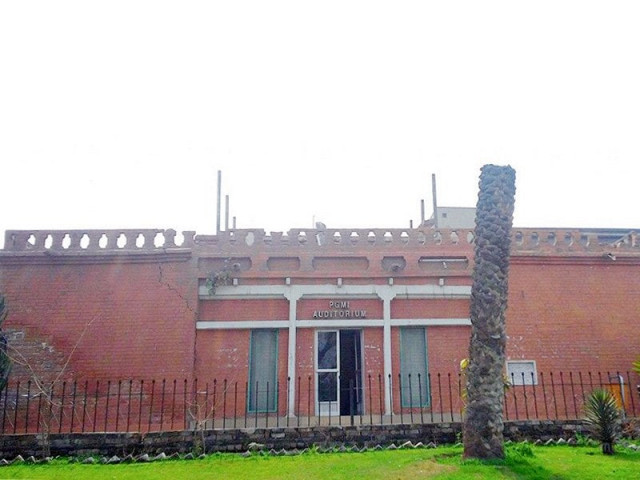Govt shows flexibility to address employees’ demands
Manages to placate protesting nurses by hearing some of their grievances

Manages to placate protesting nurses by hearing some of their grievances. PHOTO: HIDAYAT KHAN/EXPRESS
It was said that not all, but just a few were agitating against government reforms. It was then that PTI Chairperson Imran Khan called “those few” a “mafia”.
This added to the fury of protesting health employees, specifically doctors, who not only demanded an apology from Imran, but also took to the streets.
Besides the government, PTI’s well-wishers in the health sector jumped in to calm the situation. They succeeded in reducing the tension to some extent. The doctors were told that health institutions were being made autonomous, however, many employees of the sector contended that these bodies were actually being privatised, which was not a fact.
In a series
Soon after the “mafia” saga ended, the government introduced the medical teaching institutions act which again created panic in the health sector as doctors were reluctant to follow the law. A major bone of contention was the dissolution of the Post Graduate Medical Institute (PGMI).
However, the government, on different occasions, made it clear PGMI was not dissolved, but devolved. As a result, this subject also cooled down.
Then came the issue of doctors’ duties in far-flung areas. The K-P health ministry understood doctors were reluctant to work in remote areas as salaries were the same for practitioners in the city or the peripheries. Therefore, the government offered attractive packages for those posted in the less favoured areas and doctors welcomed the decision.
The government also announced health professional allowance for all employees with links, in one way or the other, to patient care. Besides doctors and paramedics, nursing staff also forwarded their demands which health ministry officials claimed had been accepted.
Showing flexibility
According to officials, the department accepted almost all the demands. The dress allowance for BPS-16 was increased from Rs600 to Rs3,100, BPS-17’s from Rs600 to Rs2,100, mess allowance for BPS-16 was increased from 500 to Rs8,000 and for BPS-17 from Rs500 to Rs6,500. Monthly stipend from Rs3,500 to Rs5,000 and Rs10,000 was announced as the health professional allowance.
Keeping in view the government’s flexibility towards their demands, nurses forced the government to do more.
Closing point
However, the government had initially refused to yield to the nurses’ demands. Subsequently, the latter announced a strike. The government struck back and arrested not only a number of protesters, but also vacated hostels where student nurses were residing.
According to officials concerned, the government did not bother about the nurses’ protests as nothing there were no demands left to fulfil. However, the protests eventually came to an end after nurses had talks with the government in which the latter agreed to fulfil some of their demands.
Published in The Express Tribune, June 10th, 2016.













COMMENTS
Comments are moderated and generally will be posted if they are on-topic and not abusive.
For more information, please see our Comments FAQ